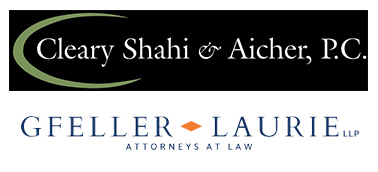March
2012
Company’s Former General Counsel Becomes Whistle-Blower in False Claim Act Case – Second Circuit to Rule on Issue
In April 2011, a Federal District Court in United States ex rel. Fair Laboratory Practices Associates v. Quest Diagnostics, Inc., Unilab Corp. et al, 2011 WL 1330542 (S.D.N.Y. April 5, 2011) dismissed a qui tamaction brought by a relator group that included the former general counsel of the Defendant company Unilab. Last fall, the Plaintiff filed an appeal, and both parties having submitted their briefs now await the Second Circuit’s decision in this matter.
This case began in 2005 when three former senior Unilab executives formed a partnership called Fair Labor Practices Associates (“FLPA”) for the sole purpose of prosecuting a qui tamaction against the Defendants, thus becoming the “relators” in this False Claim Act case. The relator group comprising FLPA — the former CEO, CFO and General Counsel of Unilab (a wholly-owned subsidiary of Quest) — alleged that the Defendants violated the Federal Health Care Anti-Kickback Act, 42 U.S.C. § 1320a-7b(b), in offering medical testing services for managed care patients at a substantial discount or below cost in order to receive referrals of Medicare and Medicaid patients that Defendants could bill directly.
After conducting limited discovery, Defendants filed a Motion to Dismiss asserting that the former general counsel disclosed Unilab’s confidential information to which he was privy as general counsel to his partners in FLPA, their attorneys, and to counsel for the United States, and in doing so breached his duty of loyalty to his former client to its disadvantage and for his own personal benefit. In response, Plaintiffs asserted two arguments: 1) that the general counsel was not “representing” another person within the meaning of the New York Code of Professional Responsibility (“NY Code”) when he sued as a relator; and 2) that he was entitled to breach the attorney-client privilege because of the “crime-fraud” exception, which permits a lawyer to reveal the intention of a client to commit a crime and the information necessary to prevent a crime.
The District Court rejected both of Plaintiff’s arguments. First, the court found that the qui tam relator is a representative of the U.S. and its interests, and accordingly counsel serving as a qui tam relator may come within the scope of DR 5-108 (the applicable section of the NY Code). Further, as a member of the FLPA, the former general counsel is representing the U.S. in a matter adverse to Unilab in direct violation of DR 5-108. Second, the court rejected Plaintiff’s reliance on the crime-fraud exception, and found that the general counsel’s disclosures of confidential information went beyond the scope permissible by the NY Code. Specifically, the court held that the disclosure of confidential information dating back to 1996 goes beyond the scope of information that the former general counsel could have reasonably believed was necessary to prevent a crime in 2005.
As a remedy, the court not only dismissed FLPA’s Complaint and disqualified the former general counsel as a relator, it also disqualified the other two FLPA partners and their outside counsel from the lawsuit and any subsequent suit based upon these facts. The court did state, however, that nothing in its opinion prevents the U.S. from intervening in this action and from bringing an action against these Defendants, which the U.S. has yet to do.
FLPA has appealed this case to the U.S. Court of Appeals for the Second Circuit. The parties have filed their briefs (Case 11-1565-cv), and now await the court’s ruling. While the District Court noted the “great federal interest in preserving the sanctity of the attorney-client relationship,” it will be interesting to see if Plaintiff’s argument that “the strong federal interest in policing and redressing fraud against the government through the FCA …should not be undermined by … a colorable interpretation” of the NY Code (Pl. Reply Brief) wins the day with the Second Circuit.





